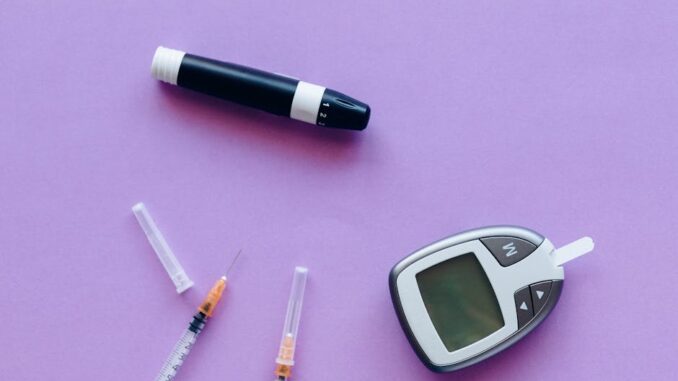
In a groundbreaking study, Sana Biotechnology, Inc. has demonstrated the successful transplantation of hypoimmune-modified pancreatic islet cells into a diabetic non-human primate (NHP) without the use of immunosuppressive drugs. This achievement marks a significant advancement in the field of diabetes management, offering hope for a more effective and less invasive treatment option for individuals with type 1 diabetes.
The Challenge of Immunosuppression in Islet Cell Transplantation
Islet cell transplantation has long been considered a potential cure for type 1 diabetes, a condition where the immune system attacks insulin-producing beta cells in the pancreas. However, the success of this procedure has been limited by the need for lifelong immunosuppressive therapy to prevent the recipient’s immune system from rejecting the transplanted cells. These drugs, while effective in preventing rejection, come with a host of side effects, including increased susceptibility to infections, higher risk of certain cancers, and other health complications.
Secure patient data with ease. See how TrueNAS offers self-healing data protection.
Sana’s Hypoimmune Technology: A Game Changer
Sana Biotechnology’s innovative hypoimmune (HIP) technology aims to address these challenges by genetically modifying donor-derived islet cells to evade both allogeneic (from a different individual) and autoimmune rejection. By altering specific genes, the modified cells are less recognizable to the recipient’s immune system, reducing the likelihood of rejection without the need for immunosuppressive drugs.
In preclinical studies, HIP-modified islet cells have shown promising results. For instance, in a study published in Cell Stem Cell, researchers transplanted these modified cells into a diabetic NHP. The results were remarkable: the transplanted cells engrafted successfully, provided stable endocrine function, and enabled insulin independence in the absence of immunosuppression. Notably, there was no indication of immune recognition or response against the transplanted cells during the study period. (pubmed.ncbi.nlm.nih.gov)
First-in-Human Clinical Trial: A Milestone Achievement
Building on these preclinical successes, Sana Biotechnology, in collaboration with Uppsala University Hospital in Sweden, initiated a first-in-human clinical trial to evaluate the safety and efficacy of HIP-modified islet cell transplantation in patients with type 1 diabetes. The study aimed to provide proof of concept for transplanting functional islet cells without the need for immunosuppression.
The trial enrolled a 42-year-old male patient with a long history of type 1 diabetes. Four weeks post-transplantation, the patient exhibited cell survival and modest levels of insulin production without any form of immunosuppression. This marked the first time in human clinical trials that a donor-sourced transplant survived without immunosuppression. (thejdca.org)
Six-Month Follow-Up: Sustained Success
Encouraged by these initial findings, the research team conducted a six-month follow-up to assess the long-term viability and function of the transplanted cells. The results were promising: the patient continued to produce insulin, as evidenced by consistent levels of circulating C-peptide, a marker of insulin production. Additionally, MRI scans revealed signals consistent with graft survival at the transplant site. Importantly, the patient did not require insulin injections during this period, and no safety issues were identified. (biospace.com)
Implications for Type 1 Diabetes Treatment
These findings have significant implications for the treatment of type 1 diabetes. The ability to transplant islet cells without the need for immunosuppression could revolutionize diabetes management by eliminating the risks associated with long-term use of immunosuppressive drugs. Moreover, this approach could make islet cell transplantation a more accessible and viable option for a broader range of patients.
Looking Ahead: Challenges and Future Directions
While these results are promising, several challenges remain. The scalability of the HIP technology, sourcing sufficient quantities of donor-derived islet cells, and ensuring long-term graft survival are critical areas that require further research and development. Additionally, the cost-effectiveness of this treatment modality must be evaluated to determine its feasibility for widespread clinical adoption.
Sana Biotechnology is actively working to address these challenges. The company is developing stem cell-derived islet cells, known as SC451, which could provide a more abundant and consistent source of islet cells for transplantation. By leveraging its HIP technology, Sana aims to create a scalable and sustainable solution for treating type 1 diabetes.
Conclusion
Sana Biotechnology’s pioneering work in hypoimmune-modified islet cell transplantation represents a significant step forward in the quest for a cure for type 1 diabetes. By eliminating the need for immunosuppression, this approach offers a safer and more effective treatment option for patients. As research progresses, it holds the potential to transform the landscape of diabetes care, offering hope for a future where individuals with type 1 diabetes can achieve insulin independence without the burden of lifelong immunosuppressive therapy.
References
-
Schrepfer, S., et al. (2024). Hypoimmune islets achieve insulin independence after allogeneic transplantation in a fully immunocompetent non-human primate. Cell Stem Cell. (pubmed.ncbi.nlm.nih.gov)
-
The JDCA. (2025). Cell Protection Without Immunosuppression: Sana Biotech’s T1D Trial Presents Early Data. (thejdca.org)
-
Sana Biotechnology, Inc. (2025). Sana Biotechnology Announces Positive Six-Month Clinical Results from Type 1 Diabetes Study of Islet Cell Transplantation Without Immunosuppression. (biospace.com)


Wow, insulin independence? Sounds like Type 1 diabetes might finally get its happily ever after! I wonder, with tech like this advancing, are we closer to a future where organ donation waiting lists become a thing of the past?